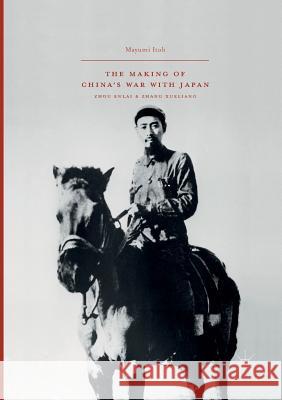The Making of China's War with Japan: Zhou Enlai and Zhang Xueliang » książka
topmenu
The Making of China's War with Japan: Zhou Enlai and Zhang Xueliang
ISBN-13: 9789811091766 / Angielski / Miękka / 2018 / 256 str.
Kategorie BISAC:
Wydawca:
Palgrave MacMillan
Język:
Angielski
ISBN-13:
9789811091766
Rok wydania:
2018
Wydanie:
Softcover Repri
Ilość stron:
256
Waga:
0.33 kg
Wymiary:
21.01 x 14.81 x 1.47
Oprawa:
Miękka
Wolumenów:
01
Dodatkowe informacje:
Wydanie ilustrowane











